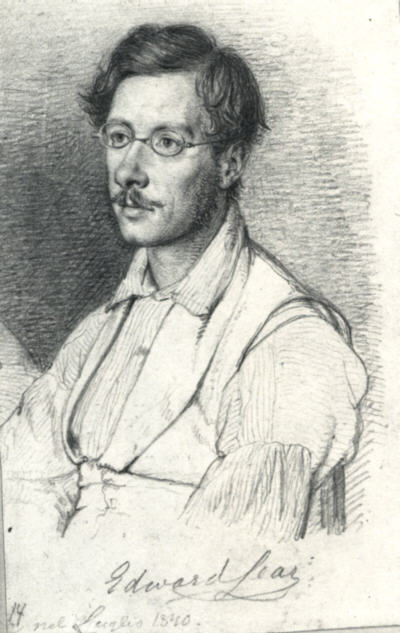|
Anastrophe
Anastrophe (from the el, ἀναστροφή, ''anastrophē'', "a turning back or about") is a figure of speech in which the normal word order of the subject, the verb, and the object is changed. For example, subject–verb–object ("I like potatoes") might be changed to object–subject–verb ("potatoes I like"). Examples Because English has a settled natural word order, anastrophe emphasizes the displaced word or phrase. For example, the name of the City Beautiful urbanist movement emphasises "beautiful". Similarly, in "This is the forest primeval", from Henry Wadsworth Longfellow's ''Evangeline'', the emphasis is on "primeval". If the emphasis that comes from anastrophe is not an issue, the synonym ''inversion'' is perfectly suitable. Anastrophe is common in Ancient Greek and Latin poetry, such as in the first line of the ''Aeneid'': :''Arma virumque cano, Troiæ qui primus ab oris'' ::("I sing of arms and the man, who first from the shores of Troy") In the example, ... [...More Info...] [...Related Items...] OR: [Wikipedia] [Google] [Baidu] |
Figure Of Speech
A figure of speech or rhetorical figure is a word or phrase that intentionally deviates from ordinary language use in order to produce a rhetorical effect. Figures of speech are traditionally classified into '' schemes,'' which vary the ordinary sequence of words, and '' tropes,'' where words carry a meaning other than what they ordinarily signify. An example of a scheme is a polysyndeton: the repetition of a conjunction before every element in a list, whereas the conjunction typically would appear only before the last element, as in "Lions and tigers and bears, oh my!"—emphasizing the danger and number of animals more than the prosaic wording with only the second "and". An example of a trope is the metaphor, describing one thing as something that it clearly is not in order to lead the mind to compare them, in "All the world's a stage." Four rhetorical operations Classical rhetoricians classified figures of speech into four categories or :Jansen, Jeroen (2008) Imitatio'' ... [...More Info...] [...Related Items...] OR: [Wikipedia] [Google] [Baidu] |
Hyperbaton
Hyperbaton , in its original meaning, is a figure of speech in which a phrase is made discontinuous by the insertion of other words.Andrew M. Devine, Laurence D. Stephens, ''Latin Word Order: Structured Meaning and Information'' (Oxford: Oxford University Press, 2006), p. 524. In modern usage, the term is also used more generally for figures of speech that transpose sentences' natural word order, and it is also called an anastrophe. Etymology The word is borrowed from the Greek ''hyperbaton'' (), meaning "stepping over", which is derived from ''hyper'' ("over") and ''bainein'' ("to step"), with the ''-tos'' verbal adjective suffix. The idea is that to understand the phrase, the reader has to "step over" the words inserted in between. Classical usage The separation of connected words for emphasis or effect is possible to a much greater degree in highly-inflected languages, whose sentence meaning does not depend closely on word order. In Latin and Ancient Greek, the effect of hyperba ... [...More Info...] [...Related Items...] OR: [Wikipedia] [Google] [Baidu] |
Samuel Taylor Coleridge
Samuel Taylor Coleridge (; 21 October 177225 July 1834) was an English poet, literary critic, philosopher, and theologian who, with his friend William Wordsworth, was a founder of the Romantic Movement in England and a member of the Lake Poets. He also shared volumes and collaborated with Charles Lamb, Robert Southey, and Charles Lloyd. He wrote the poems ''The Rime of the Ancient Mariner'' and ''Kubla Khan'', as well as the major prose work ''Biographia Literaria''. His critical work, especially on William Shakespeare, was highly influential, and he helped introduce German idealist philosophy to English-speaking cultures. Coleridge coined many familiar words and phrases, including "suspension of disbelief". He had a major influence on Ralph Waldo Emerson and American transcendentalism. Throughout his adult life, Coleridge had crippling bouts of anxiety and depression; it has been speculated that he had bipolar disorder, which had not been defined during his lifetime.Jamis ... [...More Info...] [...Related Items...] OR: [Wikipedia] [Google] [Baidu] |
Poetic Devices
Poetic devices are a form of literary device used in poetry. Poems are created out of poetic devices composite of: structural, grammatical, rhythmic, metrical, verbal, and visual elements. They are essential tools that a poet uses to create rhythm, enhance a poem's meaning, or intensify a mood or feeling. Poetic device style Poetic Diction is a style of writing in poetry which encompasses vocabulary, phrasing, and grammatical usage. Along with syntax, poetic diction functions in setting the tone, mood, and atmosphere of a poem to convey the poet's intention. Poetic devices shape a poem. Types of poetic diction Sound Poetic devices that have a sonic quality achieve specific effects when heard. Words with a sound-like quality can strike readers as soothing or dissonant while evoking certain thoughts and feelings associated with them. * Alliteration–Repeated consonant sounds at the beginning of words placed near each other, usually on the same or adjacent lines. Alliterati ... [...More Info...] [...Related Items...] OR: [Wikipedia] [Google] [Baidu] |
Rhetorical Techniques
In rhetoric, a rhetorical device, persuasive device, or stylistic device is a technique that an author or speaker uses to convey to the listener or reader a meaning with the goal of persuading them towards considering a topic from a perspective, using language designed to encourage or provoke an emotional display of a given perspective or action. Rhetorical devices evoke an emotional response in the audience through use of language, but that is not their primary purpose. Rather, by doing so, they seek to make a position or argument more compelling than it would otherwise be. Modes of persuasion Originating from Aristotle's ''Rhetoric'', the four modes of persuasion in an argument are as follows: ;Logos : is an appeal to logic using intellectual reasoning and argument structure such as giving claims, sound reasons for them, and supporting evidence.Selzer, J. (2004). Rhetorical Analysis: Understanding How Texts Persuade Readers. In C. Bazerman & P. Prior (Eds.), ''What Writing Do ... [...More Info...] [...Related Items...] OR: [Wikipedia] [Google] [Baidu] |
Yoda
Yoda () is a fictional character in the ''Star Wars'' universe, first appearing in the 1980 film ''The Empire Strikes Back''. He is a small, green humanoid alien who is powerful with the Force and is a leading member of the Jedi Order until its near annihilation. In ''The Empire Strikes Back'', Yoda was voiced and puppeteered by Frank Oz, who reprised the role in ''Return of the Jedi'', the prequel trilogy, and the sequel trilogy. Outside of the films, the character has been mainly voiced by Tom Kane, starting with the 2003 ''Clone Wars'' animated television series. Yoda is an iconic figure in popular culture due to his distinct pattern of speech and role as a wise mentor. In his first appearance in the original trilogy, Yoda is described as the mentor of Obi-Wan Kenobi, and lives in exile on the swamp planet of Dagobah. He trains Luke Skywalker in the ways of the Force until his death at the age of 900 in ''Return of the Jedi'', though he later returns as a Force spirit. I ... [...More Info...] [...Related Items...] OR: [Wikipedia] [Google] [Baidu] |
Mending Wall
"Mending Wall" is a poem by the twentieth-century American poet Robert Frost (1874–1963). It opens Robert's second collection of poetry, '' North of Boston'', published in 1914 by David Nutt, and it has become "one of the most anthologized and analyzed poems in modern literature". Background Like many of the poems in '' North of Boston'', "Mending Wall" narrates a story drawn from rural New England. The narrator, a New England farmer, contacts his neighbor in the spring to rebuild the stone wall between their two farms. As the men work, the narrator questions the purpose of a wall "where it is we do not need the wall" (23). He notes twice in the poem that "something there is that doesn’t love a wall" (1, 35), but his neighbor replies twice with the proverb, "Good fences make good neighbors" (27, 45). Noted philosopher and politician Onora O'Neill Onora Sylvia O'Neill, Baroness O'Neill of Bengarve (born 23 August 1941) is a British philosopher and a crossbench member of ... [...More Info...] [...Related Items...] OR: [Wikipedia] [Google] [Baidu] |
Robert Frost
Robert Lee Frost (March26, 1874January29, 1963) was an American poet. His work was initially published in England before it was published in the United States. Known for his realistic depictions of rural life and his command of American colloquial speech, Frost frequently wrote about settings from rural life in New England in the early 20th century, using them to examine complex social and philosophical themes. Frequently honored during his lifetime, Frost is the only poet to receive four Pulitzer Prizes for Poetry. He became one of America's rare "public literary figures, almost an artistic institution".''Contemporary Literary Criticism''. Ed. Jean C. Stine, Bridget Broderick, and Daniel G. Marowski. Vol. 26. Detroit: Gale Research, 1983. p 110. He was awarded the Congressional Gold Medal in 1960 for his poetic works. On July 22, 1961, Frost was named poet laureate of Vermont. Biography Early life Robert Frost was born in San Francisco to journalist William Prescott Frost J ... [...More Info...] [...Related Items...] OR: [Wikipedia] [Google] [Baidu] |
Parody
A parody, also known as a spoof, a satire, a send-up, a take-off, a lampoon, a play on (something), or a caricature, is a creative work designed to imitate, comment on, and/or mock its subject by means of satiric or ironic imitation. Often its subject is an original work or some aspect of it (theme/content, author, style, etc), but a parody can also be about a real-life person (e.g. a politician), event, or movement (e.g. the French Revolution or 1960s counterculture). Literary scholar Professor Simon Dentith defines parody as "any cultural practice which provides a relatively polemical allusive imitation of another cultural production or practice". The literary theorist Linda Hutcheon said "parody ... is imitation, not always at the expense of the parodied text." Parody may be found in art or culture, including literature, music, theater, television and film, animation, and gaming. Some parody is practiced in theater. The writer and critic John Gross observes in his ''Oxford Boo ... [...More Info...] [...Related Items...] OR: [Wikipedia] [Google] [Baidu] |
Gerard Manley Hopkins
Gerard Manley Hopkins (28 July 1844 – 8 June 1889) was an English poet and Jesuit priest, whose posthumous fame placed him among leading Victorian poets. His prosody – notably his concept of sprung rhythm – established him as an innovator, as did his praise of God through vivid use of imagery and nature. Only after his death did Robert Bridges publish a few of Hopkins's mature poems in anthologies, hoping to prepare for wider acceptance of his style. By 1930 Hopkins's work was seen as one of the most original literary advances of his century. It intrigued such leading 20th-century poets as T. S. Eliot, Dylan Thomas, W. H. Auden, Stephen Spender and Cecil Day-Lewis. Early life and family Gerard Manley Hopkins was born in Stratford, EssexW. H. Gardner (1963), ''Gerard Manley Hopkins: Poems and Prose'' Penguin p. xvi. (now in Greater London), as the eldest of probably nine children to Manley and Catherine Hopkins, née Smith. He was christened at the Anglican church of S ... [...More Info...] [...Related Items...] OR: [Wikipedia] [Google] [Baidu] |
Metrical Psalter
A metrical psalter is a kind of Bible translation: a book containing a verse translation of all or part of the Book of Psalms in vernacular poetry, meant to be sung as hymns in a church. Some metrical psalters include melodies or harmonisations. The composition of metrical psalters was a large enterprise of the Protestant Reformation, especially in its Calvinist manifestation. Biblical basis During the Protestant Reformation, a number of Bible texts were interpreted as requiring reforms in the music used in worship. The Psalms were particularly commended for singing; James 5:13 asks, "Is anyone happy? Let him sing songs of praise." Colossians 3:16 states "Let the word of Christ dwell in you richly as you teach and admonish one another with all wisdom, and as you sing psalms, hymns and spiritual songs with gratitude in your hearts to God." Various Reformers interpreted these texts as imposing strictures on sacred music. The psalms, especially, were felt to be commended to be ... [...More Info...] [...Related Items...] OR: [Wikipedia] [Google] [Baidu] |
Archaism
In language, an archaism (from the grc, ἀρχαϊκός, ''archaïkós'', 'old-fashioned, antiquated', ultimately , ''archaîos'', 'from the beginning, ancient') is a word, a sense of a word, or a style of speech or writing that belongs to a historical epoch long beyond living memory, but that has survived in a few practical settings or affairs. Lexical archaisms are single archaic words or expressions used regularly in an affair (e.g. religion or law) or freely; literary archaism is the survival of archaic language in a traditional literary text such as a nursery rhyme or the deliberate use of a style characteristic of an earlier age—for example, in his 1960 novel '' The Sot-Weed Factor'', John Barth writes in an 18th-century style. Archaic words or expressions may have distinctive emotional connotations—some can be humorous (''forsooth''), some highly formal (''What say you?''), and some solemn (''With thee do I plight my troth''). A distinction between archaic and obsole ... [...More Info...] [...Related Items...] OR: [Wikipedia] [Google] [Baidu] |

%2C_Portrait_miniature%2C1809.jpg)





.jpg)